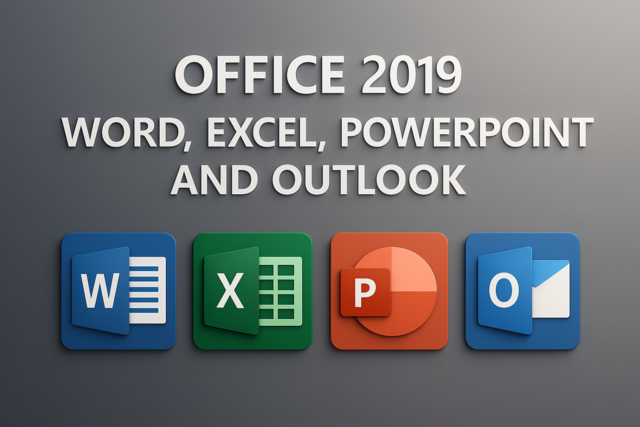One of the most fun words to spell in the English language is "bookkeeping" because of its consecutive pairing of letters. However, bookkeeping does not always come across as the most fun activity when you are actually required to do it.
What exactly is bookkeeping? As the name implies, bookkeeping is a system of maintaining records and data within a centralized book. With modern advancements in technology, of course, data is no longer written entirely in long- or shorthand or retained within a physical master ledger book.
The practice of maintaining documentation about a business's fiscal operations has become steadily more essential, thanks to increased reliance upon computerized programs and the scrutiny placed upon business transactions stemming from heightened regulatory laws and reporting procedures. Documentation also has become more sophisticated in terms of how data is recorded and stored because of newly introduced programs and metrics.
Bookkeeping versus Accounting
What distinguishes bookkeeping from accounting?
The term "accounting" encapsulates the larger, broader category comprising a wide range of financial documentation procedures, including database management, invoice processing, income verification, tax processing and payroll, that culminate in a single, concentric financial report.
"Bookkeeping," on the other hand, refers to the day-to-day techniques employed to expedite the general record-keeping process. This grouping covers the inputting of amounts, dates, and sources per each item on both the revenue (assets) and expense (debits) sides of the ledger.
Bookkeeping: An Overview
According to the American Institute of Professional Bookkeepers (AIPB), "Even the greatest CPA [certified public accountants] cannot create strong financial statements from flimsy data." Hence, it is the opinion of the AIPB that bookkeepers' contributions are critical in terms of companies' overall healthy fiscal functioning and reporting.
In terms of specific bookkeeper skill sets, the following is an itemized listing in order of viewed importance:
- basic accounting knowledge: 78 percent;
- thoroughness and attention to detail: 77 percent;
- being orderly and well-organized: 68 percent;
- problem resolution abilities: 58 percent;
- computing/technology know-how: 49 percent.
For the most part, bookkeepers/accountants and auditors rely upon the following forms of computer technology in order to perform their respective job duties:
Accounting software, accounts payable software, accounts receivable software, auditing software, business performance management software, compliance software, corporate responsibility system technologies, compliance positioning systems, document management software, financial analysis and compliance software, and spreadsheet software programs.
Note: Within each of these general categories, there are a host of brand name programs and specialty systems designed to competently facilitate the task at hand.
Bookkeeper: Job Responsibilities
Bookkeepers tend to hold positions within a company's accounting departments. Regardless of whether the company in question is a boutique firm, mid-size entity, or large corporate conglomerate, bookkeeping remains an integral function carried out by a designated person, referred to as a full-charge bookkeeper.
As an open job position, a posting for a bookkeeper may read as follows: seeking someone able to keep financial records tracking company's expenditures; manage profit and loss statements; monitor cash flow; and facilitate numerous additional financial-related activities. Candidate should possess exemplary financial aptitude and proficiency utilizing database and spreadsheet computer programs to process records.
Generally speaking, bookkeepers are charged with the verification of a company's financial transactions and, upon confirmation, entering the details into ledgers. After inputting data, bookkeepers then tally the figures and summarize the details.
Periodically, the bookkeeper balances the books. During this process, the bookkeeper is able to ascertain, monetarily, what has been spent and what has been received; the amount of money owed by the company and that which is owed to the company; and the degree to which the company profited or incurred a loss.
Specifically, bookkeepers need to fully understand the nature of making entries into a ledger; adjusting entries as need be; reconciling bank statements; calculating tax depreciation; setting up and maintaining inventory systems; implementing internal security controls designed to prevent fraudulent activities; and expediting payroll, including employee wages, withholding, and depositing and reporting taxes via usage of standardized tax forms.
Within a large firm, the multiple facets of bookkeeping are assigned to specialized areas. Within each area, one or more bookkeeping clerks, also called accounting clerks, are supervised by a head bookkeeper.
While the accounts receivable department oversees a ledger used to record the firm's sales history, the accounts payable department is responsible for a ledger that tracks the firm's purchases of goods and services. In turn, it is the duty of auditing clerks to verify the accuracy of records posted by other workers.
Because of the widespread use of computers and bookkeeping software programs, bookkeepers are able to complete the responsibilities of their jobs in much shorter time spans. Thus, they are now freed to take on such additional duties as billing, payroll, and even customer service.
Bookkeeping: Certification
Though it is not necessary to become certified to work as a bookkeeper, those who choose to fulfill the requirements to become a certified bookkeeper (CB) will need to complete the following:
- Candidates must log a minimum of two full years of work experience, or the part-time/freelance equivalent.
- Their experience must total at least 3,000 hours.
- They must have documentation indicating they passed a four-part national examination inclusive of two parts administered at any Prometric Test Center. Part one is adjusting entries and error correction; part two covers payroll and depreciation; and the other two parts are open-book workbook exercises on inventory and internal controls and prevention.
- In order to pass, applicants must have a minimum of 75 percent accuracy on the Prometric parts and 70 percent on the open workbook sections.
- Certified bookkeepers must sign a copy of the bookkeeping industry's code of ethics.
- Candidates must show proficiency in adjusting entries and error correction, including bank reconciliation, depreciation, book and tax, and payroll.
Upon earning the title of Certified Bookkeeper, an individual is publicly acknowledged as having met the highest national standards for bookkeepers in accounting, tax, and payroll.
Bookkeeping: Job Liabilities
Should you be someone who manages the "books," you may not realize that you can be held personally liable in the following types of cases: employee monies withheld and not paid to the government; using check-signing authority to pay creditors and tax authorities; Internal Revenue Service penalties whereby the agency may view the possibility of recovering lost funds to be better if it sues the individual as opposed to entire companies.
One of the ways bookkeepers have found to relieve the pressure associated with possible liabilities is to ensure all checks require a double signature or a final signature (second signature). This way, bookkeepers do not accept full responsibility should taxes not be properly remitted to the government or if other unlawful instances come to pass.
BOOKKEEPING: Dos and Don'ts
It is imperative that bookkeepers be both accurate and ethical when performing their duties because they can be held liable should information be found falsified and/or omitted.
Bookkeeping: Top 10 Mistakes to Avoid
Thus, in order to offer some guidance to becoming a more proficient bookkeeper, we will begin by looking at the top 10 mistakes to avoid:
- Throwing away receipts: While many authorities advise people to keep receipts for items over $75, this may be misleading, as documentation of smaller purchases can help substantiate end-of-year deductions.
- Doing your own taxes and/or managing your own books: Though it may save money in the short term, in the long term this is not always the case. The advantage of working with a professional, whether it be an accountant, bookkeeper, or tax specialist, is that the professional is likely to be more knowledgeable than you with regard to the associative laws and procedures. In addition, an outside person is more objective and removed from the minute details and thus better able to catch mistakes and notice inconsistencies.
- Neglecting to track reimbursable expenses: Often, business people get caught up in the frenetic pace of their work and overlook small details, such as retaining receipts and recording expenditures. Regardless of whether one works for himself or herself, for a large corporation, or is the owner of a large corporation, it is important to maintain a record of business-related expenses and keep receipts as documentation. Over time, these expenses add up. Without proper records, you will be unable to recoup your original outlay of money.
- Vagueness among staff in terms of workplace status: Nowadays, workplaces tend to have an eclectic mix of full-time staff, part-time staff, freelancers, temporary workers, and outside contractors. While these variances may help a company save money in terms of having to offer full-time benefits and other incentives, they also tend to create confusion in terms of accounting purposes. As there are different rules and regulations that apply to persons who are employees versus those who are independent contractors, these roles need to be clearly defined to avoid improper filings.
- Deficiency of current knowledge of accounting industry and lack of communication: Not all bookkeepers/accountants are created equal. While there are numerous certifications and re-certifications that one needs to have in order to perform certain functions related to finance, that does not automatically guarantee the individual is up to speed on the most current policies, laws, and procedures. Other areas in which lapses tend to occur are poor communication, either among staff or in terms of documentation. Should a business transaction take place (e.g., check be written on a corporate account), this information needs to be inputted to ensure the account remains properly balanced.
- Even if items are properly inputted and especially if they are not, the books need to be reconciled against the bank statement on a regular basis. A minimum of once a month is necessary to ensure all items are accounted for and that the books are balanced and numbers are running in the black. If you wait too long to cross-check the books, you may find that a) there are greater amounts of data to sift through all at once, and b) if you do find a discrepancy, it may be past the point of correction. Plus, if any of the business's financial dealings are ever called into question, you will be able to quickly respond and provide supportive documentation.
- Lack of backup: So long as the Internal Revenue Service conducts audits, there remains a need to retain written documentation, or a paper trail, of business activities. While paper items may take up extra room and require additional maintenance, they serve as a vital means of verifying previous dealings.
- Neglecting to deduct sales tax: For the most part, this is an issue that affects retail businesses. Creating higher total sales amounts, the business owner is then required to pay higher taxes.
- Discretionary funds: Often, such available funds are not properly accounted for. This is particularly true in petty cash funds where once monies have been used, they simply are replaced without any type of monitoring or recording of amounts.
- Miscategorization and overcategorization: General categories within ledgers allow for vague accounting practices. There will always be items that simply do not fall under a specific category, but this should only be the case in isolated incidents. When there become excessive amounts of items in categories marked as "miscellaneous" or "general," the system begins to lose definition and credibility as a meaningful tool.
Bookkeeping: Positive Action Steps
So that we do not just dwell on the negative, the following are some positive steps one can take to implement a sound and effective bookkeeping system.
- It is best NOT to use the same account for both personal and business expenses. It also is best to use different credit cards for personal and business purposes. While many already know this, the reason is that when personal and business funds become enmeshed, there is great difficulty in maintaining an accurate accounting of either entity.
- Make a point of recording both revenue and expenses on a daily basis. Without an accurate account of your finances, it will prove immensely difficult to make business decisions, such as new purchases, requests for service fees, or booking business travel. Plus, if you wait, as some people tend to do, until the end of the week or month to record entries, there is an increased likelihood of items slipping through the cracks, receipts getting lost, and/or balances getting thrown off-kilter.
- Take time to carefully review entries. We all live busy lives in which we do not even have time for lunch, let alone a few minutes to review our business ledger. However, this is an important thing to do. Far too often, items get inputted incorrectly or are overlooked. Conscientiousness will go a long way, both in terms of catching mistakes more quickly and also alleviating future hassles.
- It is possible to tailor your bank statements to coincide with your preferred accounting practices. This means, if you are an end-of-the-month reconciler, then you can request a month-end cutoff so that you do not have to look at more transactions than required. This practice will also help instill a sense of regularity whereby you conduct your accounting oversight activities at approximately the same time each month.
- Leave an audit trail. If, perhaps, you were attempting to get away with something, you might not want to leave a trail by which someone could track you and your business dealings. Because you are an honest, upstanding citizen, however, you will want to be able to document your dealings, allowing you to swiftly access information should the need arise.
As a whole, the implementation of a cohesive bookkeeping system entails establishing a well-formulated organizational system whereby checks are kept in numeric order without skips or recording lapses. Ideally, you should be able to go back and reconstruct your business activities for at least one year, if not two or three.































